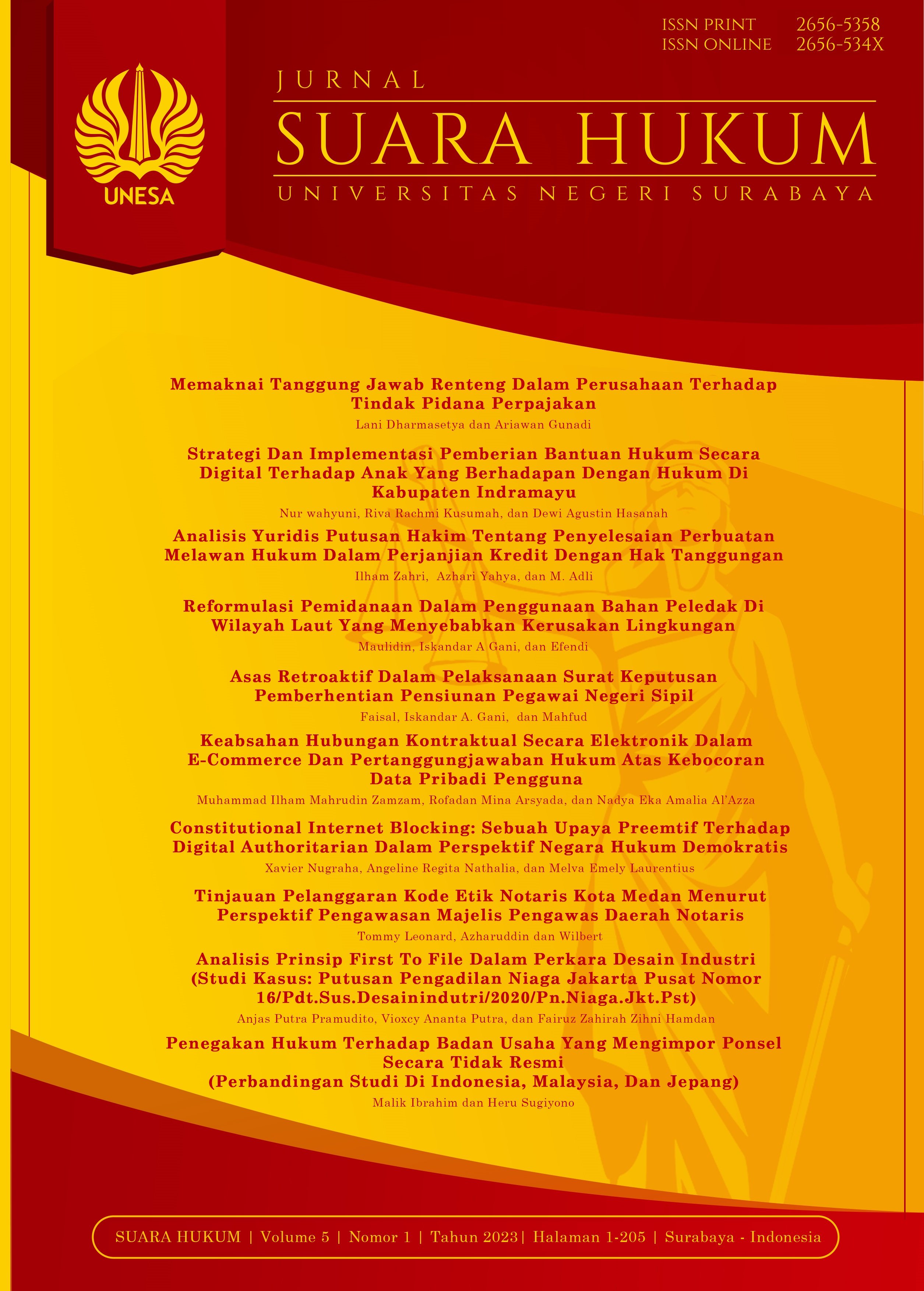Law Enforcement Against Business Enterprise That Import an Unofficial Mobile Phone (Study Comparasion in Indonesia, Malaysia and Japan)
DOI:
https://doi.org/10.26740/jsh.v5n2.p226-251Abstract
Imported goods sent to a country do not necessarily have a permit or official to be traded in that country. In this study, the question that will be answered is what are the implications for the import of unofficial cellular phones by business actors who are sold to consumers and how law enforcement and the difference between unofficial cellular phones by business actors are sold to consumers in Indonesia, Malaysia, and Japan. This research method uses normative juridical type. The results of the study show different legal products from each country and their enforcement. In Indonesia, the impact of this forgery can be detrimental to state tax revenues as well as economic instability. Thus, it is regulated by law from Article 45 and Article 46 of the Consumer Protection Law to sanction a prisoner of a maximum of 2 years with a fine of Rp. 500,000,000.00. Malaysia is also affected by this black market, namely the decline in the state deficit due to the non-disbursement of goods taxes. Law enforcement in Malaysia refers to the counterfeiting rules based on the CopyRight Act 1987 with a prison sentence of not more than 5 years and a fine of money. In addition, in Japan itself has the Consumer Protection Law of 2000 and its enforcement for people who carry counterfeit and counterfeit goods based on article 167 with a prison fine of not more than 3 years. The conclusion that can be drawn is that each country, such as Indonesia, Malaysia, and Japan, has its own way of enforcing the law against the sale of unauthorized cell phones, but the impact can be the same.
Downloads
Published
Issue
Section
License
Copyright (c) 2023 Malik Ibrahim

This work is licensed under a Creative Commons Attribution-NonCommercial 4.0 International License.
 Abstract views: 399
,
Abstract views: 399
, PDF Downloads: 218
PDF Downloads: 218




